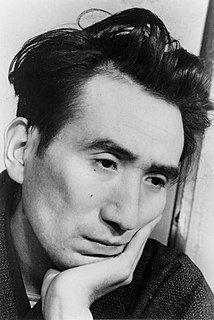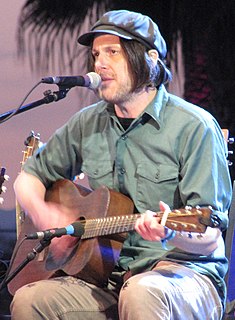A Quote by C. S. Lewis
The higher animals are in a sense drawn into Man when he loves them and makes them (as he does) much more nearly human than they would otherwise be.
Related Quotes
Some indeed have tears naturally, when the higher motion of the soul makes itself felt in the lower, or because God our Lord, seeing that it would be good for them, allows them to melt into tears. But this does not mean that they have greater charity or that they are more effective than others who enjoy no tears.
The intelligence displayed by many dumb animals approaches so closely to human intelligence that it is a mystery. The animals see and hear and love and fear and suffer. They use their organs far more faithfully than many human beings use theirs. They manifest sympathy and tenderness toward their companions in suffering. Many animals show an affection for those who have charge of them, far superior to the affection shown by some of the human race. They form attachments for man which are not broken without great suffering to them.
The more gifted by nature is a man, the more is deplorable the abuse that he does by using them to shameful ends. A swindler (or crook) of higher condition is more blameworthy than a vulgar scoundrel; an intelligent eveil-doer, having benefited from a higher education, represent a more saddening phenomenon ("phénomène", Fr.) than an unfortune illiterate fellow having commited an offence.
Mother, recently I have discovered the one way in which human beings differ completely from other animals. Man has, I know, language, knowledge, principles, and social order, but don't all the other animals have them too, granted the difference of degree? Perhaps the animals even have religions. Man boasts of being the lord of all creation, but it would seem as if essentially he does not differ in the least from other animals. But, Mother, there was one way I thought of. Perhaps you won't understand. It's a faculty absolutely unique to man - having secrets. Can you see what I mean?
When one admits that nothing is certain one must, I think, also admit that some things are much more nearly certain than others. It is much more nearly certain that we are assembled here tonight than it is that this or that political party is in the right. Certainly there are degrees of certainty, and one should be very careful to emphasize that fact, because otherwise one is landed in an utter skepticism, and complete skepticism would, of course, be totally barren and completely useless.
We consider the animals to be lower, and to me, that makes no sense at all. If you look at a tree or a mushroom or a squirrel, it's perfectly in tune with itself. It has no problem being exactly what it is, and it does what it's meant to do without any complaints or problems. Because we create all these problems in being, we think we're somehow higher than the animals. But it's we humans who have a difficult time even caring for our children, or anything.
The saints should always remember that God sees not as man sees; that he does not willingly afflict his children, and that if he requires them to endure present privation and trial, it is that they may escape greater tribulations which would otherwise inevitably overtake them. If He deprives them of any present blessing, it is that he may bestow upon them greater and more glorious ones by-and by.
What is a Poet? He is a man speaking to men: a man, it is true, endued with more lively sensibility, more enthusiasm and tenderness, who has a greater knowledge of human nature, and a more comprehensive soul, than are supposed to be common among mankind; a man pleased with his own passions and volitions, and who rejoices more than other men in the spirit of life that is in him; delighting to contemplate similar volitions and passions as manifested in the goings-on of the universe, and habitually impelled to create them where he does not find them.
What struck me whenever I visited a farm was how much more sophisticated was the life the animals were capable of living than was assumed by those exploiting them. The more we are willing to see about their lives, the more we will see. Humans seem to take perverse pleasure in attributing stupidity to animals when it is almost always entirely a question of human ignorance.





































